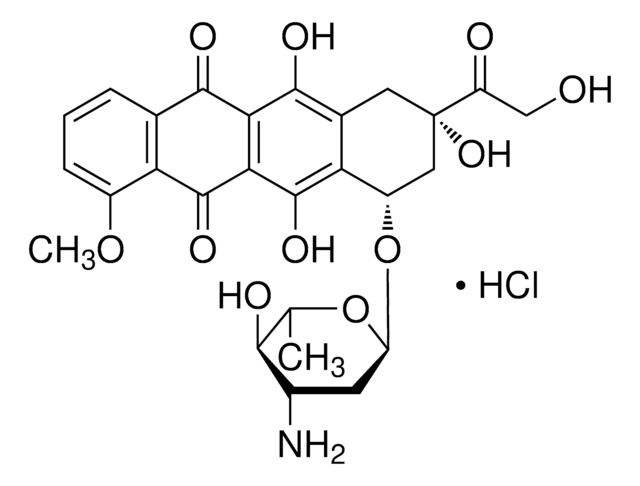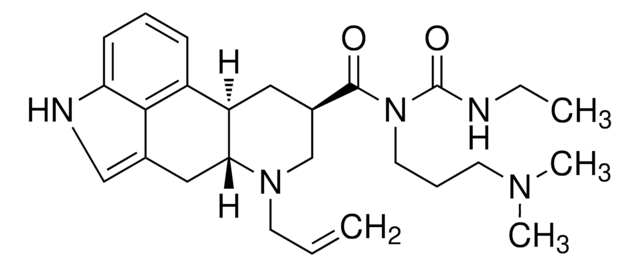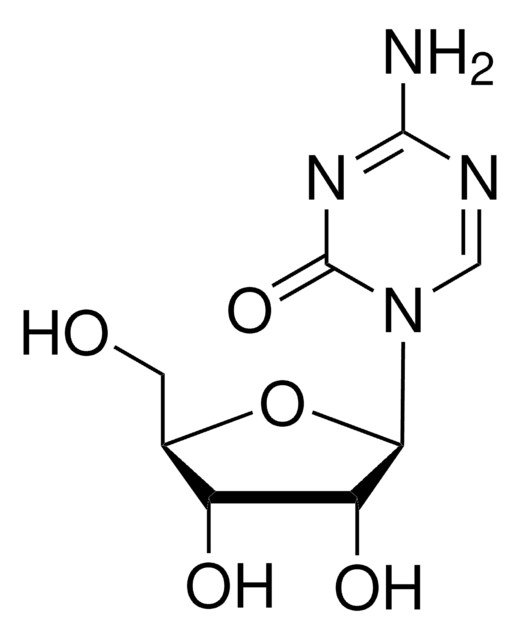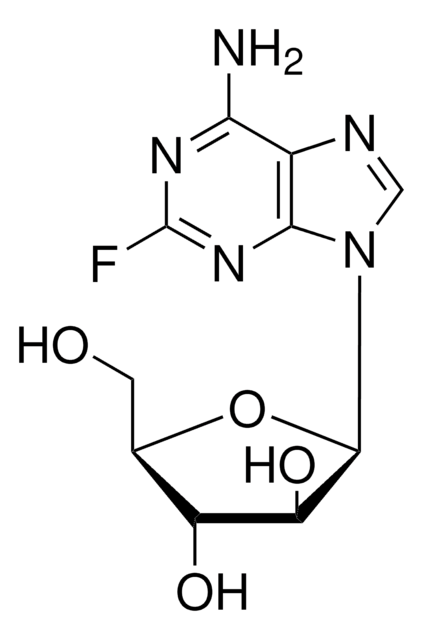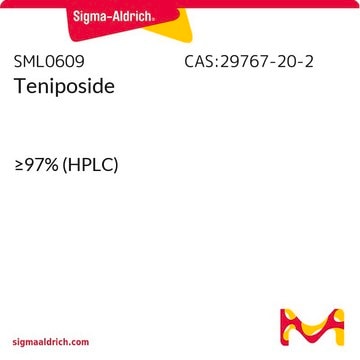I1656
Idarubicin hydrochloride
solid
Synonym(s):
(7S-cis)-9-Acetyl-7-[(3-amino-2,3,6-trideoxy-α-L-lyxo-hexopyranosyl)oxy]-7,8,9,10-tetrahydro-6,9,11-trihydroxy-5,12-naphthacenedione, 4-Demethoxydaunorubicin hydrochloride, DMDR, IMI-30, Idamycin
About This Item
Recommended Products
form
solid
Quality Level
originator
Johnson & Johnson
shipped in
wet ice
storage temp.
2-8°C
SMILES string
[H][C@@]1(C[C@@](O)(Cc2c(O)c3C(=O)c4ccccc4C(=O)c3c(O)c12)C(C)=O)O[C@H]5C[C@H](N)[C@H](O)[C@H](C)O5
InChI
1S/C26H27NO9/c1-10-21(29)15(27)7-17(35-10)36-16-9-26(34,11(2)28)8-14-18(16)25(33)20-19(24(14)32)22(30)12-5-3-4-6-13(12)23(20)31/h3-6,10,15-17,21,29,32-34H,7-9,27H2,1-2H3/t10-,15-,16-,17-,21+,26-/m0/s1
InChI key
XDXDZDZNSLXDNA-TZNDIEGXSA-N
Gene Information
human ... TOP2A(7153)
Looking for similar products? Visit Product Comparison Guide
Application
Biochem/physiol Actions
Features and Benefits
Signal Word
Danger
Hazard Statements
Precautionary Statements
Hazard Classifications
Acute Tox. 2 Oral - Carc. 2 - Repr. 1B
Storage Class Code
6.1A - Combustible acute toxic Cat. 1 and 2 / very toxic hazardous materials
WGK
WGK 3
Flash Point(F)
Not applicable
Flash Point(C)
Not applicable
Personal Protective Equipment
Choose from one of the most recent versions:
Certificates of Analysis (COA)
Don't see the Right Version?
If you require a particular version, you can look up a specific certificate by the Lot or Batch number.
Already Own This Product?
Find documentation for the products that you have recently purchased in the Document Library.
Customers Also Viewed
Articles
DNA damage and repair mechanism is vital for maintaining DNA integrity. Damage to cellular DNA is involved in mutagenesis, the development of cancer among others.
Cell cycle phases (G1, S, G2, M) regulate cell growth, DNA replication, and division in proliferating cells.
Apoptosis regulation involves multiple pathways and molecules for cellular homeostasis.
Cancer stem cell media, spheroid plates and cancer stem cell markers to culture and characterize CSC populations.
Our team of scientists has experience in all areas of research including Life Science, Material Science, Chemical Synthesis, Chromatography, Analytical and many others.
Contact Technical Service

